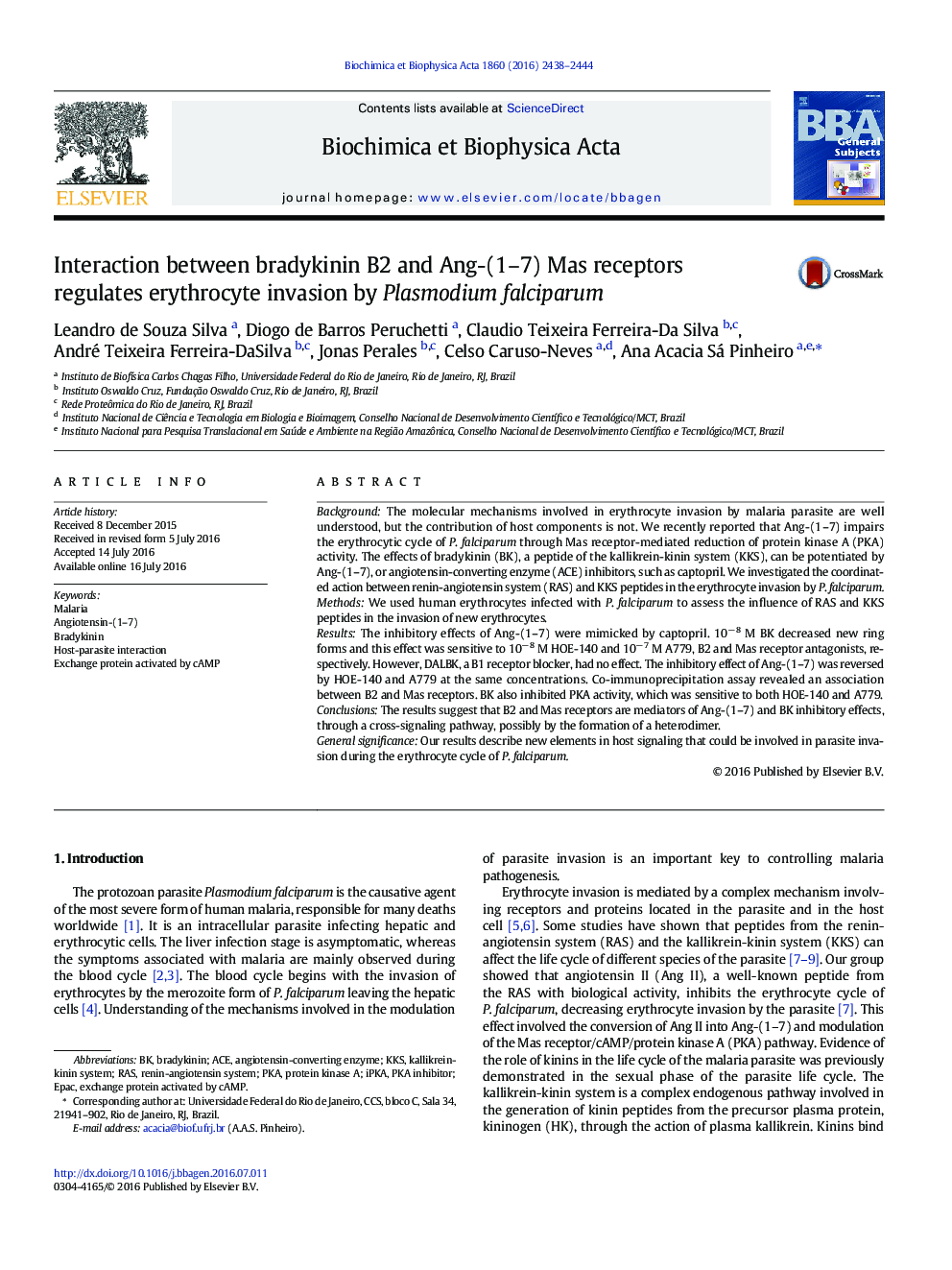| Article ID | Journal | Published Year | Pages | File Type |
|---|---|---|---|---|
| 1947307 | Biochimica et Biophysica Acta (BBA) - General Subjects | 2016 | 7 Pages |
•BK mimics Ang-(1-7) effect in reducing erythrocyte invasion by P. falciparum•BK reduces erythrocyte invasion by P. falciparum by inhibiting PKA activity.•Mas and B2 receptors are associated in the erythrocyte membrane.•Parasite EPAC blocks the inhibitory effect of Ang-(1-7)/BK on erythrocyte invasion.
BackgroundThe molecular mechanisms involved in erythrocyte invasion by malaria parasite are well understood, but the contribution of host components is not. We recently reported that Ang-(1–7) impairs the erythrocytic cycle of P. falciparum through Mas receptor-mediated reduction of protein kinase A (PKA) activity. The effects of bradykinin (BK), a peptide of the kallikrein-kinin system (KKS), can be potentiated by Ang-(1–7), or angiotensin-converting enzyme (ACE) inhibitors, such as captopril. We investigated the coordinated action between renin-angiotensin system (RAS) and KKS peptides in the erythrocyte invasion by P. falciparum.MethodsWe used human erythrocytes infected with P. falciparum to assess the influence of RAS and KKS peptides in the invasion of new erythrocytes.ResultsThe inhibitory effects of Ang-(1–7) were mimicked by captopril. 10− 8 M BK decreased new ring forms and this effect was sensitive to 10− 8 M HOE-140 and 10− 7 M A779, B2 and Mas receptor antagonists, respectively. However, DALBK, a B1 receptor blocker, had no effect. The inhibitory effect of Ang-(1–7) was reversed by HOE-140 and A779 at the same concentrations. Co-immunoprecipitation assay revealed an association between B2 and Mas receptors. BK also inhibited PKA activity, which was sensitive to both HOE-140 and A779.ConclusionsThe results suggest that B2 and Mas receptors are mediators of Ang-(1–7) and BK inhibitory effects, through a cross-signaling pathway, possibly by the formation of a heterodimer.General significanceOur results describe new elements in host signaling that could be involved in parasite invasion during the erythrocyte cycle of P. falciparum.
